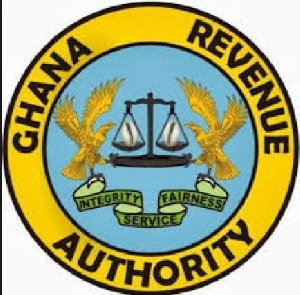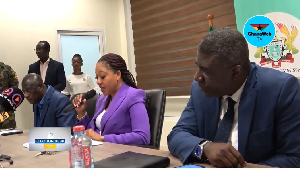Beginning next year, individuals and corporate organizations who fail to submit their tax returns within a specified period cannot enjoy essential government services, the Head of Tax Policy at the Ministry of Finance, Daniel Nuer has said.
The 2018 Budget has introduced a Voluntary Disclosure Procedure (VDP) in the Revenue Administration Act, 2016 (Act 915) to waive penalties on voluntary disclosures and payment of unreported and understated taxes by taxpayers within a period agreed with the Commissioner-General of the Ghana Revenue Authority (GRA).
The move forms part of government’s strategy under revenue measures in the 2018 Budget, and also represents an innovative way of improving domestic revenue collection for economic development.
Speaking to the B&FT in an interview on the sidelines of a post-budget forum for members of the Parliamentary Press Corp and Institute of Financial and Economic Journalists (IFEJ), Mr. Nuer explained it is important to improve tax collection since Ghana’s tax to Gross Domestic Product (GDP) ratio is below what is required for economic development.
“By April 30th every month, you are supposed to have filed your tax returns; for the first day that you don’t file it, there is an amount of GH?500 that is due, and after that everyday there is GH?10 that is due.
“Right now, we are saying that if you do not file there are some government services that you will not be provided with; we have not finalised that, it’s now being finalised. Government is now sorting out which specific services, so it will be done during the year [2018],”
On whether this will be challenging enough, he noted that when a taxpayer files his or her returns, there is an acknowledgement sheet that shows you have filed. So, what is required is to produce that sheet [fact of filing]. “Wherever you are, for which particular purpose it is needed, once you show it, it can be verified,” he said.
Income tax returns are filed once a year and are supposed to be filed on the 30th day of April.
Currently, tax compliance among the informal sector is too low despite the economic activities generated in that sector – which has put the tax burden on a few workers in the formal sector, affecting government’s revenue projections.
It is reported that about 4 million people in the formal sector and about 1.1 million in the informal sector are paying taxes of about GH?3.5billion.
The Ghana Revenue Authority (GRA), in the 2018 Budget, has targeted the collection of GH¢40billion to boost government’s revenue base.
Click to view details



Business News of Wednesday, 22 November 2017
Source: thebftonline.com
Tax defaulters to miss out on government services
Entertainment
















